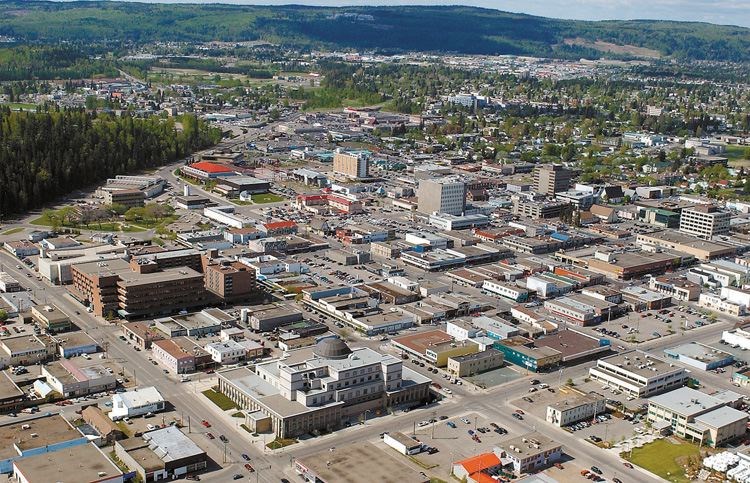Positive Living North, a local non-profit agency that uses a harm reduction model to serve community members at-risk or living with HIV/HCV, may have to close the doors early next year.
Existing funding to Positive Living North, which runs its street-level programs at the Fire Pit Cultural Drop-In Centre on Third Avenue, is set to run out on March 31.
"Currently we receive funding from the Public Health Agency of Canada (PHAC) from a number of their funding streams," said Vanessa West, executive director for Positive Living North, which used to get the funding from the Aids Community Action Fund and also from the Federal Non-Reserve fund geared for educational program, which offers funding for urban aboriginals who are living off reserve.
That funding has been in place since 2004, said West.
"We have always accessed that fund," she added.
The Public Health Agency of Canada (PHAC) is investing $26.4 million in community-based programs across the nation targeting Canadians at risk of HIV/AIDS, hepatitis C, and other related sexually transmitted and blood borne infections but there are no longer different programs within the general funding to access for specific programs like the Fire Pit that serves about 150 individuals each day in downtown Prince George.
"So what they've done is actually tried to realign the work they're doing to be more reflective of it being a federally funded program so because of that one thing that they've decided is that a lot of the activities that AIDS service organizations across the country - not just PLN - have been doing work that should be the responsibility of the province," said West.
"So what they've deemed ineligible are any services that are direct health services so that could be funding a nurse to do testing or counselors, etc., so we didn't actually think it included support services - so those are the soft services that we provide to people in need."
After submitting a letter of intent in May, Positive Living North received an invitation Sept. 29 to submit a full proposal for their programming but it needed to focus on education and prevention.
"But anything we do at the Fire Pit, which is considered direct health services, is an ineligible cost under the new fund," said West.
"So we were not denied funding, we're no longer eligible for the funding."
PHAC did not provide the criteria to the Citizen for the redesigned Aids Community Action Fund or the dollar amount agencies could access under the new criteria.
Moving forward with the project proposal to PHAC, it will now be geared to fund the education department of Positive Living North where there are HIV educators in Smithers and Prince George that do outreach programming about prevention and education.
The proposal to PHAC will request $200,000 to $250,000 annually.
Positive Living North has been well supported by the Northern Health Authority, said West, with funding to increase prevention, harm reduction, testing and treatment support services.
Northern Health is aware of the recent PHAC funding decision and is committed to working with PLN to mitigate the impact on those at-risk and/or those living with HIV, said a Health Authority representative.
PLN will have to find $175,000 to keep the Fire Pit open, said West.
"It is quite the huge chunk that we have to find elsewhere," she added.
"It was quite a big hit to the Fire Pit and we're exploring our options and diversifying our approach to see if we fall into any other funding streams. It's a needed service for a very vulnerable and marginalized population."
The bigger picture sees those 150 people who access the services at the Fire Pit each day in downtown Prince George with nowhere to go if the program ends.
"Shelters need to do maintenance so people have to leave the shelters at a certain time and then where are people going to go?" asked West. "If there's no Fire Pit then they're walking and they're sometimes going to be problematic to business owners because they have no where else to go. So we're looking at different ways to make up that funding deficiency."
West said they may have to look at industry and different grants to get the funding needed to continue services in the downtown core.
"We see people dealing with the illness of addiction," said West.
"We are located right beside the needle exchange AIDS prevention program and they come through our doors and when they're ready to make that step towards a healthier journey we're there for them and that's the main thing - we're a low threshold, harm reduction program that basically is giving people a safe space and in that moment of clarity when they are talking with an elder or one of our support staff and they say they want to change their life, we're right there with them and ready to walk with them - whatever path they choose."



